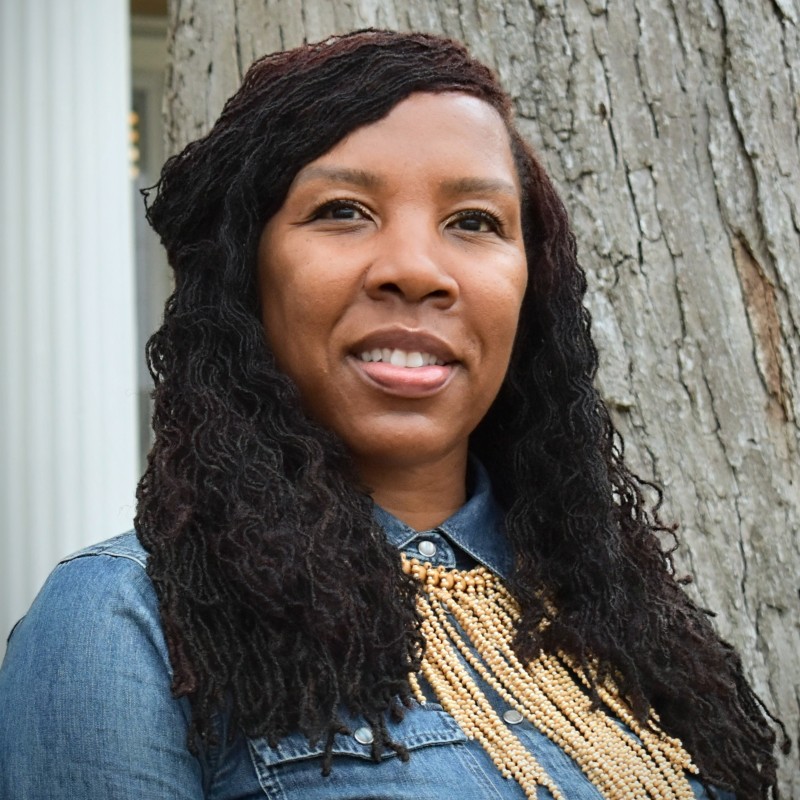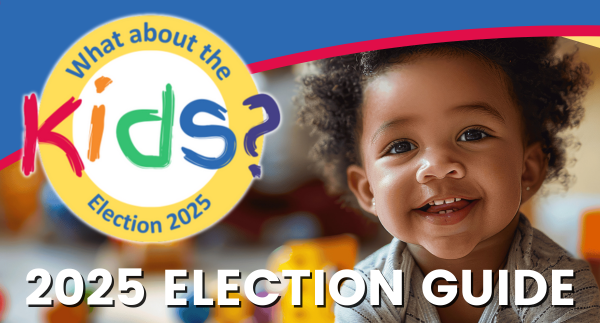1. It’s Economic Infrastructure, Not a Private Convenience
Child care is the workforce behind every other workforce. When parents have access to reliable, affordable care, they can work, earn, and contribute to the state’s economy. When they don’t, businesses lose employees, productivity declines, and economic growth slows.
Inadequate child care costs the U.S. economy an estimated $122 billion annually in lost earnings, productivity, and revenue. Here in New Jersey, that translates into an estimated $3.6 billion economic loss each year; driven by parents missing work, employers struggling with absenteeism, and reduced tax revenues from families forced out of the labor force (First Five Years Fund, 2025; NJ Business & Industry Association, 2024).
With New Jersey losing an estimated $3.6 billion each year due to child care breakdowns, investing in affordable, reliable care isn’t just social policy. It's a sound economic strategy.
2. It Shapes Educational and Workforce Readiness for Generations
High-quality early childhood education doesn’t just help children. It strengthens the state’s long-term human capital. Children who attend quality early learning programs are more likely to succeed in school, graduate, and contribute productively as adults. Investing in early care is one of the most cost-effective strategies for building a skilled future workforce and reducing later spending on remedial education, health care, and social services.
3. It Advances Gender Equity and Family Economic Stability
The child care crisis disproportionately impacts women, especially mothers, who are often forced to reduce hours or leave the workforce entirely when child care is unavailable or unaffordable. That means lost income for families and lost talent for New Jersey employers.
But even when mothers remain employed, they face stalled career growth. A 2024 Robin Hood Foundation report found that 34% of working mothers declined a promotion or shifted to part-time work because of child care challenges (Robin Hood Foundation, 2024). These choices, often made out of necessity, limit women’s advancement and deepen gender wage gaps across industries.
Supporting the child care system is therefore an economic equity strategy, helping parents, particularly women, stay in and advance within the workforce.
4. It Strengthens Small Businesses and Local Economies
Most child care providers in New Jersey are small businesses that employ local residents, pay local taxes, and support their communities. When those programs close, it’s not just a loss for families. It’s a loss for neighborhoods and local economies. A robust child care sector sustains thousands of jobs and allows other small businesses to thrive by ensuring their employees can show up to work consistently.
5. It’s a Public Health and Community Stability Issue
Quality child care also supports children’s health and development, providing safe environments where they can receive nutritious meals, developmental screenings, and early intervention when needed. When the system is weak, children are more vulnerable to neglect, instability, and lost learning opportunities. All of which have long-term public health implications.
In short: Child care is not just another policy issue. It's the foundation that underpins nearly every other goal a governor could hope to achieve. From economic competitiveness and educational excellence to family well-being and equity, investing in child care is the single smartest, most cross-cutting decision the next governor of New Jersey can make.
The Affordability Crisis for Families
For too many New Jersey families, child care costs are simply out of reach. In some counties, the cost of infant care rivals or exceeds college tuition. A two-parent family earning the state’s median household income, about $126,000 a year, can expect to pay roughly $36,600 annually for center-based care for two young children (one infant and one preschooler). That means nearly 30% of their total income would go toward child care; over four times the federal affordability benchmark of 7%.
For a family earning less than the median, the percentage is even higher, forcing parents to make impossible choices between paying for care, saving for the future, or covering essentials like housing and health care. Affordable child care isn’t a “nice-to-have.” It’s the infrastructure that makes all other work possible. Without it, entire industries suffer, and families lose stability.
(Sources: First Five Years Fund, Child Care Aware of America, U.S. Department of Health & Human Services)
The Unsustainable Reality for Providers
At the same time, the child care providers who sustain this essential system are struggling to stay open. The child care industry is among the most heavily regulated sectors in New Jersey, and for good reason. These regulations are designed to protect the health, safety, and well-being of children, ensuring appropriate ratios of adults to children, staff training requirements, background checks, and facility standards that meet strict licensing criteria.
But compliance comes at a cost. Providers must maintain low child-to-staff ratios, employ qualified teachers, and meet facility, health, and insurance requirements. All while balancing increasing costs for rent, food, utilities, and supplies. These are labor-intensive businesses, meaning wages and benefits make up the largest portion of expenses. Yet, despite the level of skill, training, and responsibility required, many educators earn barely above minimum wage; far less than peers in other professions requiring comparable qualifications.
And even as programs struggle to meet state safety standards, they are being squeezed by skyrocketing insurance premiums. Many insurance carriers have begun pulling out of the child care market altogether, viewing it as “too high-risk.” Those that remain are charging astronomical rates, in some cases doubling or tripling premiums in a single year. A trend documented by multiple national reports (Bipartisan Policy Center, 2024; New America, 2024; Fast Company, 2024).
For small, community-based providers, especially family child care homes, these rising costs can mean the difference between staying open or closing their doors.
This is not a result of poor business practices. It’s a market failure. One that arises because the true cost of providing high-quality, safe, and developmentally appropriate care far exceeds what most families can afford to pay. The math simply doesn’t work: if providers raise tuition to cover actual costs, families are priced out. If they keep tuition lower to stay accessible, programs can’t pay teachers a living wage, or keep up with ballooning insurance costs.
Expecting families, already stretched to their breaking point, to shoulder higher costs is not the solution. The only sustainable way forward is through public investment. The kind of bold, systemic commitment that treats child care as essential infrastructure, just like roads, schools, and public transit.
Why Now Is the Moment for Action
The window to act is closing. The temporary federal relief funds that kept child care programs afloat during the pandemic have expired, and New Jersey’s system is already showing signs of strain. Across the country, programs are closing, educators are leaving, and families are feeling the squeeze, and New Jersey cannot afford to be next.
The warning signs are clear and urgent:
- The child care workforce in New Jersey remains substantially below its pre-pandemic levels, even as other industries have fully recovered (Rutgers School of Management and Labor Relations, 2024).
- The average advertised wage for child care teachers is just $17.68 an hour,barely half the state’s average hourly wage, making it nearly impossible to attract and retain qualified staff (Heldrich Center for Workforce Development, 2025).
- In Middlesex County, there are roughly 37,000 children under age six with working parents but only 13,500 licensed child care slots, meaning only about 36% of the need is being met (Rutgers PolicyLab, 2024).
- New Jersey’s total licensed child care capacity dropped by over 25% during the pandemic and has yet to fully rebound (Rutgers PolicyLab, 2021).
- And most recently, the New Jersey Child Care Assistance Program (CCAP), a lifeline for working families, stopped accepting new applications as of August 1, 2025 because available funding ran out. When state support runs dry, low- and moderate-income parents lose access to the very care that allows them to stay employed.
These facts make one thing clear: the system is already cracking. Programs are closing, teachers are leaving, and families are being turned away. Without bold and immediate public investment, New Jersey risks losing more of its child care infrastructure; and with it, the stability of its workforce and economy.
Delaying action doesn’t mean standing still. It means falling behind. The next governor will inherit a system at a tipping point. Choosing to invest now means building a stable, affordable, and equitable child care system that supports families, employers, and educators alike. Waiting means allowing it to collapse under its own weight, and paying far more to rebuild it later.
A Call to Lead with Courage
New Jersey has long been a national leader in education and innovation. The next governor has the chance to extend that legacy by treating child care as the public good it truly is. That means committing to sustainable public funding, investing in fair compensation for educators, and creating a system that ensures access to affordable, high-quality care for every family; no matter their income or zip code.
Investing in child care is not just the smart move, or the right move. It's the only way forward to secure a thriving, equitable future for New Jersey's children, families, and economy.





